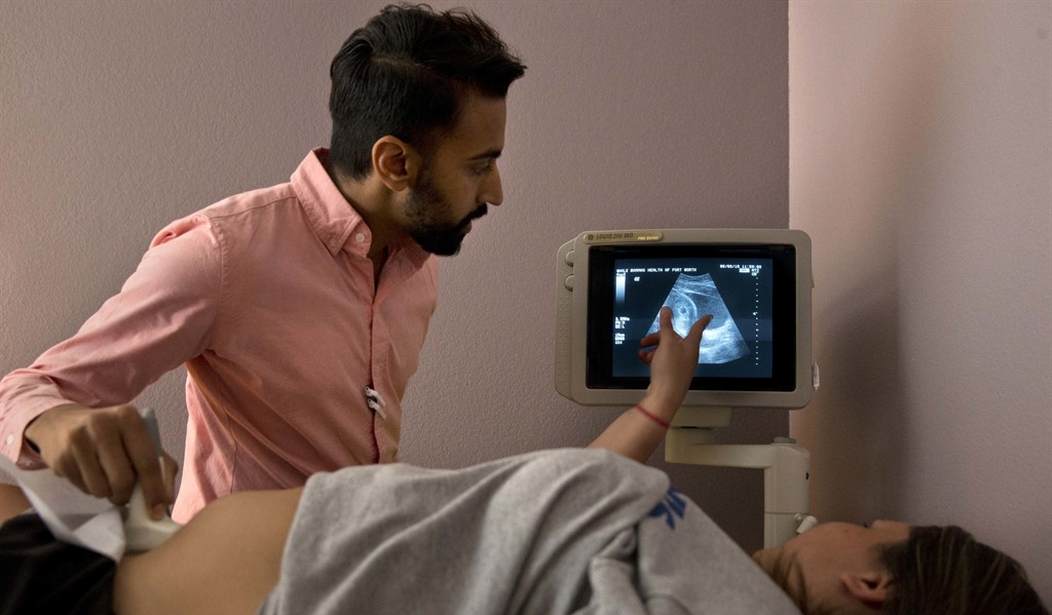Many have been upset recently by New York’s new permissive abortion law that allows abortion “within 24 weeks from the commencement of pregnancy, or there is an absence of fetal viability, or at any time when necessary to protect a patient's life or health.”
However, New York’s law is not as extreme as the policies in the following seven states that have no, or little, restrictions on abortion and allow abortion up until birth, according to the Guttmacher Institute, a pro-abortion research and policy group.
The states with the most lenient abortion laws are Oregon, Vermont, Colorado, New Hampshire and the District of Columbia, where there are no major prohibitions on abortion.
As evident from Guttmacher’s overview, in these states there are no laws requiring that abortions must be performed by a licensed physician or that they must be performed at a hospital. There are no 20-week, 24-week, or even official viability prohibitions on abortion.
Oregon and Vermont fund “all or most medically necessary abortions.”
In D.C., Colorado, and New Hampshire, the abortion funding is limited to cases of “life endangerment, rape and incest,” although there have been many efforts to change that in D.C. which were resisted by pro-life Republicans in Congress.
In Alaska, New Jersey, and New Mexico, abortions are allowed up until birth and the states fund “all or most medically necessary abortions,” however, the procedures must be performed by a licensed physician. New Jersey has the additional requirement that abortions must be performed in a hospital past 14 weeks.
Recommended
Meanwhile in New Jersey, lawmakers recently introduced a bill to prevent the slaughter of pregnant cows.
In addition to the lenient abortion laws in these seven states and D.C., Guttmacher shows that 19 states make a broad exception that allows late-term abortions for the health of the mother meaning both "physical and mental health." That list now includes 20 states given New York’s updated law.
One thing to note is that while late-term abortion up to birth is legal in seven states and D.C., it is incredibly rare and there are only a handful of doctors willing to perform these abortions which certainly limits access.
The states’ varying laws on abortion is unsurprising given that the Supreme Court provided a very broad viability rule in their 1973 Roe v. Wade decision which they reaffirmed in their 1992 Planned Parenthood v. Casey decision.
In Casey, the Court wrote that the government “may not prohibit any woman from making the ultimate decision to terminate her pregnancy before viability,” and reaffirmed from Roe that "subsequent to viability, the State in promoting its interest in the potentiality of human life may, if it chooses, regulate, and even proscribe, abortion except where it is necessary, in appropriate medical judgment, for the preservation of the life or health of the mother."
The Roe v. Wade decision defined viable as “potentially able to live outside the mother's womb, albeit with artificial aid,” adding that “viability is usually placed at about seven months (28 weeks) but may occur earlier, even at 24 weeks.”
However, the broadness of the Court’s definition of the term “viability” leaves much room for interpretation resulting in the very different state laws on abortion.
The Court has even acknowledged that reality, writing in their 1979 Colautti v. Franklin decision that “different physicians equate viability with different probabilities of survival, and some physicians refuse to equate viability with any numerical probability at all.”
Many have pointed out that with improvements in technology premature babies have survived birth as early as 21 weeks. Recent studies have supported revisiting when fetal viability begins, given the earlier survival rates.

























Join the conversation as a VIP Member